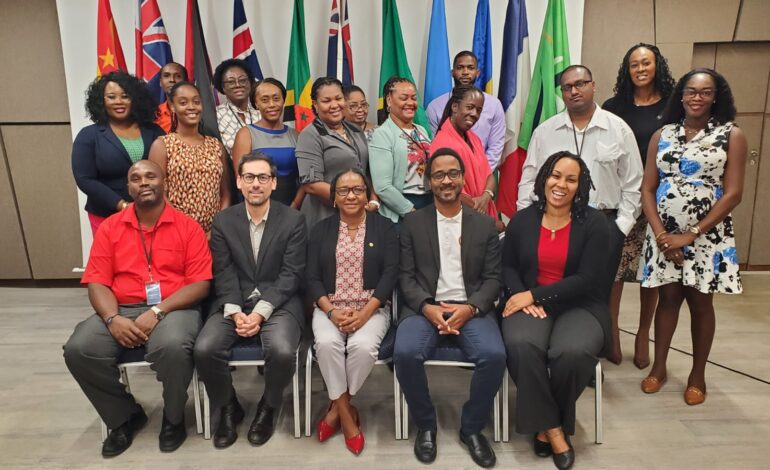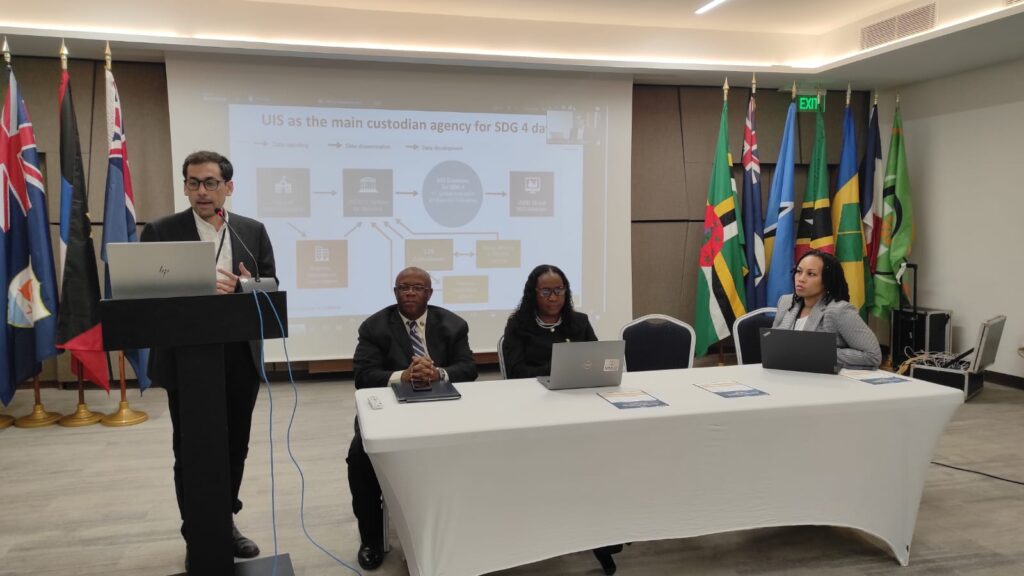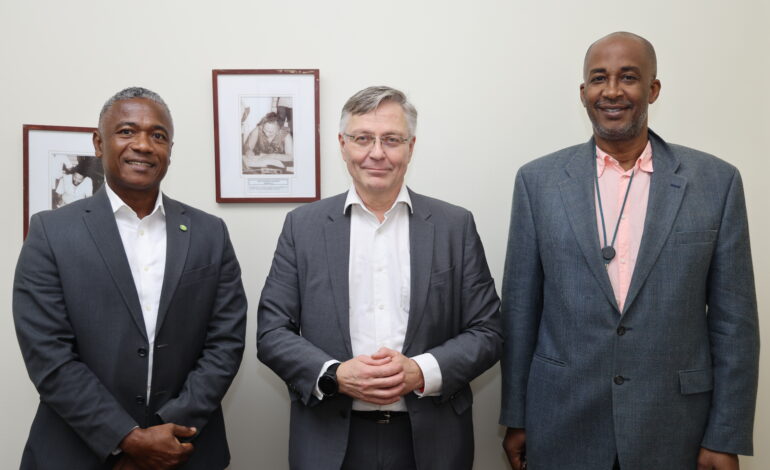
The 9th Annual Regional Statisticians Meeting, held from November 19-22, 2024, at the Radisson Hotel, Grenada, has concluded successfully, bringing together statisticians, planners, and development partners from across the Eastern Caribbean. This vital gathering sought to address challenges in data collection, management, and analysis in the education sector, particularly in light of the ongoing recovery from the COVID-19 pandemic.
The meeting marked a pivotal moment in regional efforts to strengthen education data systems and enhance the capacity of OECS Member States to monitor and achieve their educational targets. Discussions focused on reviewing the draft 2021-2022 education statistical data, publishing the 9th Edition of the OECS Education Statistical Digest, and building capacity to utilize UNESCO’s International Standard Classification of Education (ISCED) instrument.
During the meeting, statisticians received an in-depth sensitization on the International Standard Classification of Education (ISCED) 2011, with a focus on the full spectrum of education, from daycare through to post-secondary education. Under the expert guidance of UNESCO Regional Advisor Mr Manuel Alcaino, participants had the opportunity to revise their national ISCED mappings, ensuring alignment with their current educational structures. In addition, statisticians engaged in practical exercises designed to enhance their ability to calculate key indicators for Sustainable Development Goal 4: “Ensure Inclusive and Equitable Quality Education and Promote Lifelong Learning Opportunities for All”. This hands-on experience is expected to improve participants’ understanding of the reporting requirements moving forward.
Ms. Sisera Simon, Head of the Human and Social Division at the OECS Commission, emphasized the importance of reliable data,
“Reliable data is the bedrock of effective policy-making and educational reform. Inconsistent data across Member States has limited the capacity of Ministries of Education to address systemic issues, design robust interventions, and implement solutions that will shape the future of our youth. For this reason, harmonizing data collection and reporting across the OECS is paramount.”
The OECS Commission, in collaboration with development partners such as UNICEF and UNESCO, is committed to fostering a culture of data-driven decision-making in the region. Ms. Tracey Lucas, Education Officer at UNICEF’s Eastern Caribbean Area Office, highlighted the importance of data in shaping educational policies,
“UNICEF recognises that the road to developing a quality, inclusive, and equitable education for every child requires reliable data to guide relevant education policies and programmes. By working alongside the OECS and UNESCO to enhance the knowledge and capacity of our regional Ministries of Education to generate, explore, and communicate data, this collaboration promotes data utility and consumption, and contributes to an important culture shift from being data-shy to data-driven.”
Key outputs of the meeting included:
- Publication of the 9th Edition of the OECS Education Statistical Digest.
- Capacity-building sessions on the ISCED instrument.
- Strengthened abilities in trend analysis, data collection quality, and data management.
- Updated insights on progress towards OECS Education Sector Strategy (OESS) targets.
Mr Manuel Alcaino, Regional Advisor at the UNESCO Institute for Statistics, described the gathering as a critical step in advancing education planning in the region,
“This gathering of Ministries of Education and statistical teams, made possible through the invaluable collaboration and support of the OECS, marks a pivotal step in strengthening data collection capacity across the Eastern Caribbean region. Robust data systems are essential for effective educational planning and for accurately monitoring progress toward our shared goal of leaving no child behind.”
The meeting underscored the OECS’s commitment to ensuring that every child has access to quality education by enabling data-driven solutions and evidence-based policy reforms.








